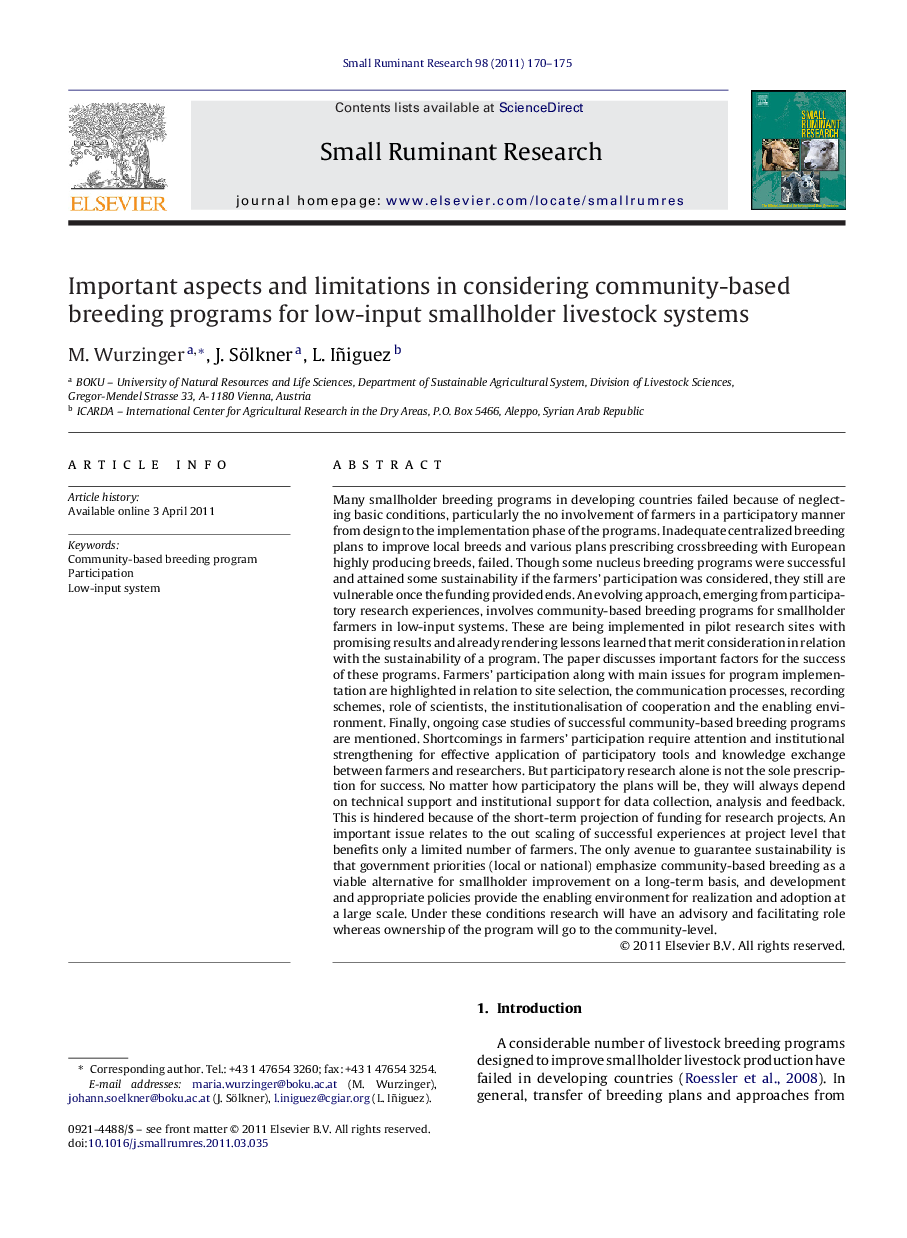| Article ID | Journal | Published Year | Pages | File Type |
|---|---|---|---|---|
| 5796511 | Small Ruminant Research | 2011 | 6 Pages |
Many smallholder breeding programs in developing countries failed because of neglecting basic conditions, particularly the no involvement of farmers in a participatory manner from design to the implementation phase of the programs. Inadequate centralized breeding plans to improve local breeds and various plans prescribing crossbreeding with European highly producing breeds, failed. Though some nucleus breeding programs were successful and attained some sustainability if the farmers' participation was considered, they still are vulnerable once the funding provided ends. An evolving approach, emerging from participatory research experiences, involves community-based breeding programs for smallholder farmers in low-input systems. These are being implemented in pilot research sites with promising results and already rendering lessons learned that merit consideration in relation with the sustainability of a program. The paper discusses important factors for the success of these programs. Farmers' participation along with main issues for program implementation are highlighted in relation to site selection, the communication processes, recording schemes, role of scientists, the institutionalisation of cooperation and the enabling environment. Finally, ongoing case studies of successful community-based breeding programs are mentioned. Shortcomings in farmers' participation require attention and institutional strengthening for effective application of participatory tools and knowledge exchange between farmers and researchers. But participatory research alone is not the sole prescription for success. No matter how participatory the plans will be, they will always depend on technical support and institutional support for data collection, analysis and feedback. This is hindered because of the short-term projection of funding for research projects. An important issue relates to the out scaling of successful experiences at project level that benefits only a limited number of farmers. The only avenue to guarantee sustainability is that government priorities (local or national) emphasize community-based breeding as a viable alternative for smallholder improvement on a long-term basis, and development and appropriate policies provide the enabling environment for realization and adoption at a large scale. Under these conditions research will have an advisory and facilitating role whereas ownership of the program will go to the community-level.
